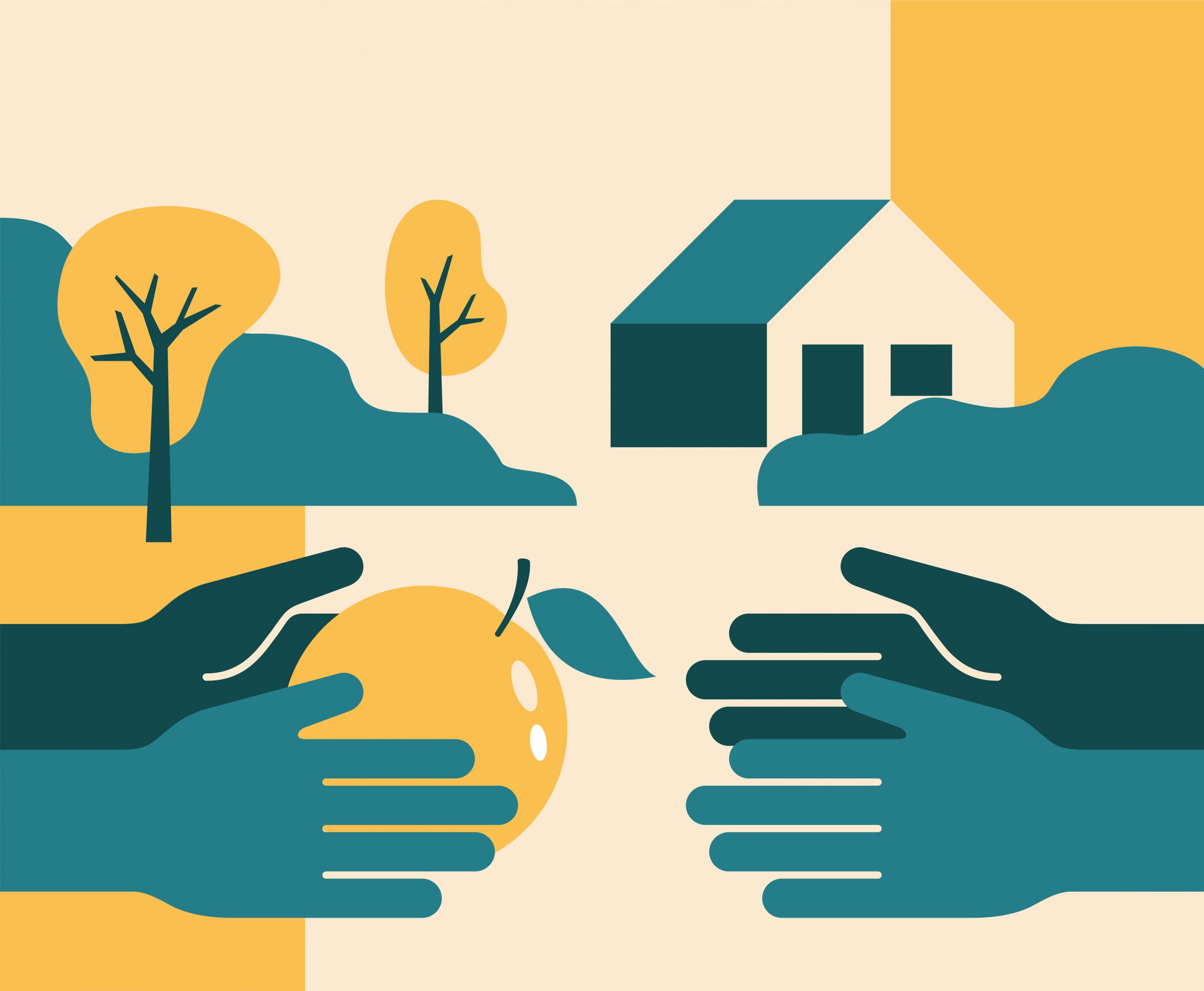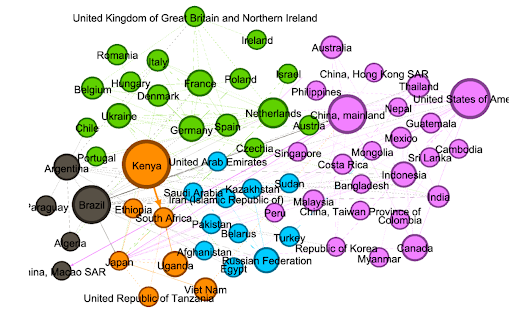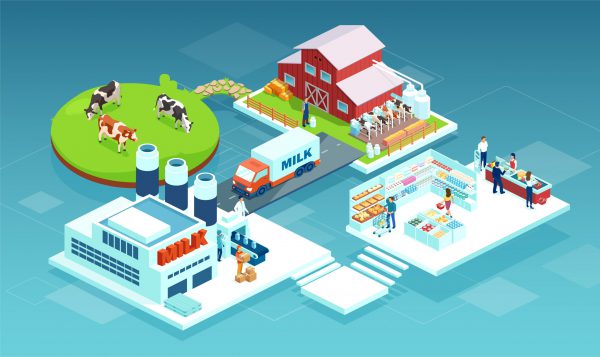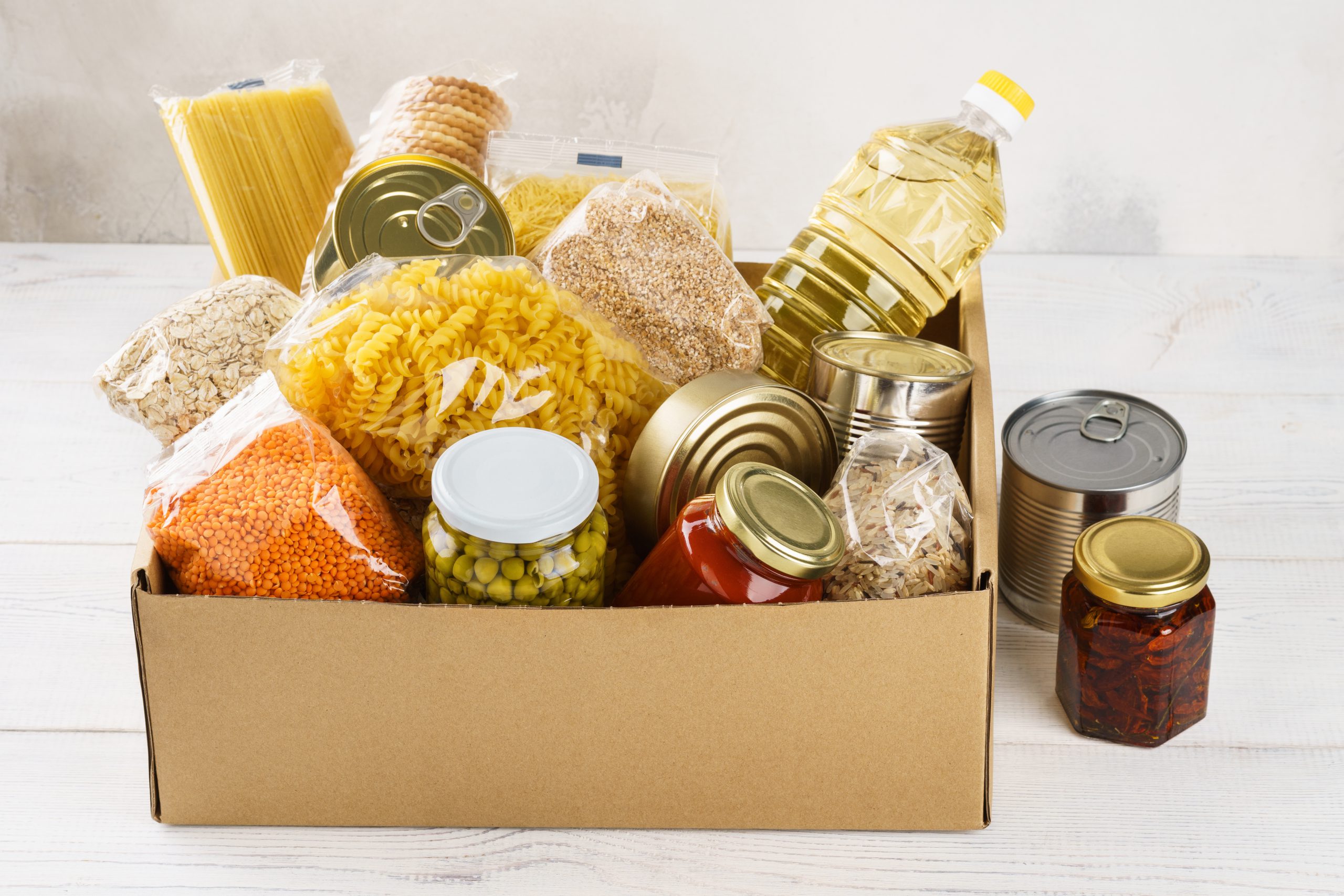Evaluating the UK’s resilience to supply chain shocks

This food system underpins many aspects of our current supply chain issues. The Covid-19 pandemic has further highlighted the importance of resilience in the food system and at KTN, we have used Industrial Mathematics to assess UK supply chain resilience and provide recommendations for keeping the food system secure.
The Covid-19 pandemic has had many negative effects on UK society and the economy. In the early weeks of the pandemic, we saw supermarket shortages and reduced offerings. As the UK is not self-sufficient in food production (for example only 16% of fruit and 52% of vegetables and salad are grown in the UK), disruption to the logistics infrastructure could have had serious knock-on effects for the UK. The often complex network and interaction of growers, manufacturers, retailers and freight organisations mean that the Covid-19 crisis puts a strain on each of these sectors and the infrastructure which supports it.
More recently, we have seen the fragility in the carbon dioxide (CO2) supply which is vital for the food and drink sector in the UK and for external factors such as gas prices. These high gas prices have shut down large fertiliser plants which produce CO2 as a by-product.
""Since the beginning of the pandemic, supply networks have been hit by major supply-side disruptions as well as demand-side shocks. Supply networks are extensive and complex, exposing the involved firms to risks located potentially deep in their networks. Hence, it is crucial for manufacturers, policymakers, and other stakeholders to understand which suppliers and products are most critical and how resilient supply networks are in recovering from disturbances and disruptions. Mathematical Sciences, including statistics, operations research, and network science, provide a range of tools to measure risk, assess the resilience of supply networks, and optimise their performance. For instance, risk modelling can be undertaken together with decision-makers to measure risk and to develop optimal risk management strategies. Network science and statistical methods can be used to quantify the extent of risk diffusion on supply networks. Operational research can be used to identify where to carry strategic inventories against shortages and how to route vehicles under uncertainty.""
Dr Güven Demirel, Lecturer in Supply Chain Management, Queen Mary University of London

The mathematical sciences have a role in providing descriptions of resource flows, and tools that can assess vulnerabilities and model possible mitigation strategies. In September 2020, Virtual Forum for Knowledge Exchange in the Mathematical Sciences (V-KEMS) which includes KTN, the Isaac Newton Institute, the International Centre for Mathematical Sciences and the Newton Gateway to Mathematics, convened a group of researchers and challenge-holders to assess the resilience of the UK food networks by:
Identifying UK’s dependencies on international food supply chains:
- What network representations can be made with available data on UK’s global trade in the AgriFood sector?
- What levels of information can these representations provide us in the context of the UK’s agricultural dependencies?
- What products and geographical locations are the most critical among the UK’s agricultural network dependencies to the rest of the world?
- How can these be reliably identified and quantified?
Evaluating challenges and bottlenecks in our national AgriFood logistics networks:
- In the Covid-19 pandemic, which AgriFood products and UK regions have been most severely affected from disruptions to the supply and transportation of goods and labour?
- What are the major bottlenecks in the national food logistics network and how can they be resolved?
- How has the access of the low-income people to food been affected by the Covid-19 crisis?

Outcomes
In evaluating the bottlenecks in our national food system, the group identified two methods and applied them to ingredient level datasets to understand how product ingredients may be mined to understand dependencies both between ingredients and products. This approach might result in aggregate estimates of products that may be affected when the supply of a certain food ingredient is impacted. These approaches may also help us distinguish between essential and non-essential ingredients, and give us pointers to understand how food items can be replaced.
V-KEMS will be running more sessions to support business recovery from the effects of the pandemic. If you are interested in the insights generated through this work or would be interested in participating in a future session (either as a problem owner or a solution provider), please do get in touch and contact Matt Butchers who is the Industrial Mathematics KTM. Also, please explore the research and development that the KTN Industrial Mathematics team has completed.
View Full Report
The working paper from the workshop group that was assembled to assess the UK’s supply chain resilience is now available. Click here to access the Agrifood Data Study Group Report.
Click here to learn more about V-KEMS, follow V-KEMS on Twitter, and please contact our Industrial Mathematics expert, Matt Butchers to discuss working together to apply advanced mathematics and solve complex systems within your organisation.
Related Opportunities
KTN-iX challenge: Industrial Decarbonisation Solutions
Opens: 06/07/2021 Closes: 30/09/2021
EQUANS, part of the ENGIE Group, is looking for SME’s with innovative industrial decarbonisation solutions who are interested in corporate strategic investment. Through this iX challenge, EQUANS is looking for disruptive tools that will support the end to end process from identifying, appraising a
More Information
Global cooperation feasibility studies for SMEs
Opens: 09/08/2021 Closes: 03/09/2021
The aim of this competition is to increase the international engagement of innovative UK registered SMEs. It will support them in looking to establish or strengthen international research and innovation partnerships and networks and aid them to grow and scale up.
More Information
Horizon Europe Work Programme 2021-2022: Civil Security for Society - Cluster 3
Opens: 09/08/2021 Closes: 23/11/2022
Horizon Europe has a wide variety of open calls for civil security for society, with closing dates in September, October or November 2021, or February or November 2022. Some of these also include security, cyber security, AI, and/or infrastructure.



